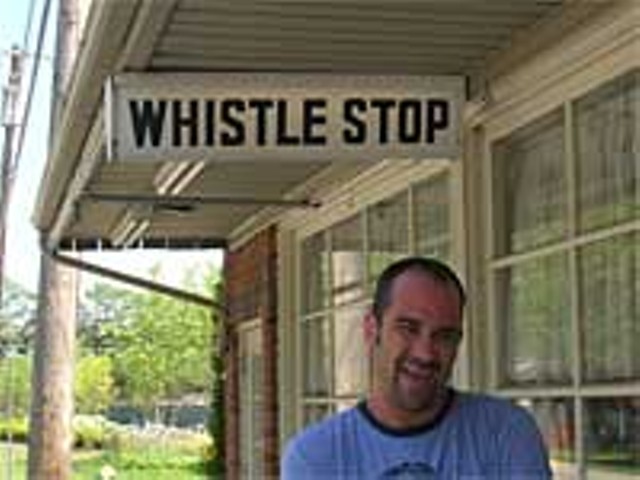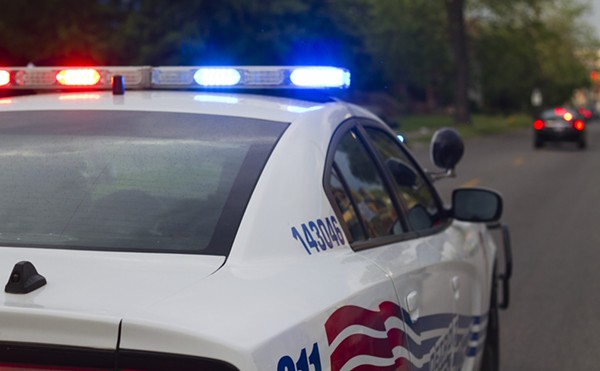Sometimes it pays to be a member of the privileged class. Just ask Mel Gibson. Hell, you can ask O.J. Simpson.
This is really pretty obvious, but I can't count the number of times that I've heard someone say — and actually believe — that this is all an illusion. When folks like Rodney King get beaten senseless by the police, they somehow asked for it. But when folks like Mel Gibson lose control, well, maybe he was just having a bad day.
Oh, sure. I've heard all the speculation that Gibson's well-documented drunken tirade against the Jews and belligerent attitude toward the police who arrested him may irreparably harm his career, but I seriously doubt it. The man is worth too much money, is too big a star, and wields far too much power in California's sacred community of Hollywood. Gibson is an institution. By this time next year, if not sooner, this story will be buried as deep as Jimmy Hoffa. As the saying goes, money talks.
Or, as another saying goes, "He who has the gold makes the rules."
One of the first stories I ever wrote as a young reporter just getting started in the business more than two decades ago came to me on a slow Sunday afternoon shift when I was just about the only person in the entire Denver Post newsroom watching the clock tick. Every so often the phone would ring with somebody claiming there was something going on that we should check out. Most of it was crap, but I made notes and said I'd pass the story along as soon as a real reporter entered the room. Well, maybe I didn't say it quite like that, but you get the idea.
But then came the call. The voice was so ripe with alcohol that I could practically smell over the phone line, but there was something about the raw panic in the man's voice that made his obviously inebriated condition irrelevant. They had beaten his boy brutally and now they were dragging him away. They had waved loaded guns at young children who lived there in the trailer park. Practically in tears, the man begged me to come out right away. Please, he said. Somebody had to do something. They might kill him.
Who are "they"? I asked.
"The police," he said.
At that point I hadn't been a reporter for more than six months, and I had only been at the Post for about two of those months. I explained that I had to wait for an editor to show up before I could do anything, but I wouldn't forget him and I would definitely call him back.
About an hour later a photographer and I were on our way to a broken-down trailer park on the outskirts of Denver that was inhabited mostly by broken-down bikers. As soon as we pulled up in the dusty lot, several doors swung open and I got some funny looks. When I explained why I was there the looks shifted to relief and a woman pointed me to the trailer of the man who had called. He had definitely been drinking, but he wasn't falling-down drunk. Once inside, he told us how his son, a young man in his early 20s, had been about to enter the trailer when a cop car came screeching into the central area and demanded that the young man come away from the trailer and move in their direction. Like father like son, the young man had been drunk, his father said. The son told the cops to kiss his ass, or some words to that effect, then proceeded once again to try and enter his father's trailer.
Obviously, telling the cops to kiss your ass is not a good idea. It was at this point when one of them approached the young man, who then made the mistake of taking a swing at the cop, all the time yelling obscenities. By now the neighbors were coming out of their trailers to see what the hell was going on. Before it was all over, the cops started to panic at the growing crowd, especially the younger one who drew his gun and yelled for everyone in the surrounding circle to back up. Folks in the crowd wanted to know what the young man had done, why they were taking him away, and why the younger cop was waving his gun around. The cops just kept shouting as they tossed the cursing young man into the back of their car and drove away to the police station, which was about five minutes away.
As it turned out, the police had arrested the wrong young man. But that wasn't all. Although it only took five minutes to drive to the station, records showed it took them nearly 20 minutes to make the drive. That's because they took a brief detour out into a nearby field to knock the kid around pretty severely. The next day a senior reporter named George Lane went to the police station to do a follow-up and asked to see the cop car that had transported the young man as well as the cell in which he had been held. He wanted to see the cell and car because the father of the young man, who'd been suddenly released soon after I interviewed the two cops involved, called the paper again to say that his son had returned home with bruises all over his body and a ripped-up ear.
When Lane got back, he told me he couldn't believe that the kid's blood was still on the back car seat. There was also blood on the stairs leading down to the holding cell, and I'm pretty sure there was blood in the cell. The kid had really been tuned up good.
Not surprisingly, nothing happened to the two cops. No disciplinary action. Nothing.
Now fast-forward to July 2006 when a megastar named Mel Gibson gets arrested driving away from a popular restaurant in swanky Malibu after he has been drinking way too much. Offered a much-needed ride home by staff members of the restaurant, he declines. Says he can drive himself. Later he gets pulled over by the Malibu police because he was driving like someone who had been drinking a lot. This is where he goes into the insane tirade about how Jews are responsible for all the wars in the world, then asks the cop if he is Jewish. Most everybody who has been paying any attention to the news knows about this part, as well as his subsequent over-the-top apology begging for forgiveness and swearing that he is not an anti-Semite. Apparently the liquor just planted those disturbed notions in his head.
But the part of Gibson's drunken dialogue that didn't attract quite as much media attention was where he said that he owned Malibu — his words — and that he essentially wouldn't rest until he had made the police officers pay for daring to pull over someone of his immense stature in the community.
Despite this rather absurd threat, combined with everything else he said, Gibson was never in any danger of being dragged into a field and kicked around like a soccer ball. Maybe he doesn't own Malibu, but he might as well. Gibson could have said a whole lot more — and a whole lot worse — and he still never would have been in any danger.
Technically, this is the way it's supposed to be. The police are experts at subduing drunken suspects without beating them up, and I believe most officers know how to do their jobs the right way. But it's strange how, when you hear the stories of cops who screw up, it's never with folks like Mel Gibson, is it? For some strange reason those screw-ups are never assigned to the Malibu detail. Either that, or they simply know they can't get away with it.
Whatever the reason, the result is the same. We all inhabit the same land mass on the North American continent, but we don't all live in the same country.
Keith A. Owens is a Detroit writer, editor and musician. Send comments to [email protected]




